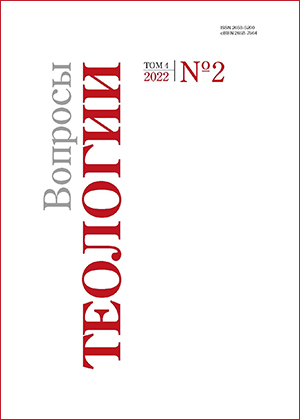Noology of Plotinus as an essay of rational theology
DOI:
https://doi.org/10.21638/spbu28.2022.202Abstract
Plotinus’ theology is often viewed from a mystical aspect. He is considered an experienced contemplator rather than a discursive theologian. But recently, works have appeared that reveal moments of the philosopher’s positive theology. Plotinus’ henology is a theology, but the One, being transcendental, excludes any cataphatics. Noology is also a theology, as the philosopher calls the Intellect God. The term “rational theology” may have two meanings, reason and understanding, corresponding to two stages of knowledge of God, empirical and descriptive. In the treatise “On the Knowing Hypostases and That Which is Beyond” Plotinus discusses two ways of cognizing the Intellect, intuitive and discursive. The soul can empirically feel the Intellect, partake in, assimilate to and even become It, but it can also comprehend its experience through understanding (διάνοια, λογιστικόν), since it is connected with the Intellect through the inherent letters (γράμμασιν), laws (νόμοις), rules (κάνοσιν). Psychology may also be viewed as “rational theology”, but not in the sense formed in the context of Christian theology, which is attributed to the term at the present time. In the structure of the Intellect, Plotinus distinguishes the Intelligible — Intellect — Intelligence triad. This triad is close to E. Husserl’s “pure ego” structure, but the phenomenological epistemology is not substantiated, in contrast to the neoplatonic model. Noology could become the ontological ground of modern epistemology, and its theological nature — the foundation of any humanitarian knowledge.
Keywords:
Plotinus, Plato, noology, rational theology, philosophical theology, neoplatonism, triadology, henology, psychology
Downloads
References
References
Downloads
Published
Issue
Section
License
Articles of "Issues of Theology" are open access distributed under the terms of the License Agreement with Saint Petersburg State University, which permits to the authors unrestricted distribution and self-archiving free of charge.




